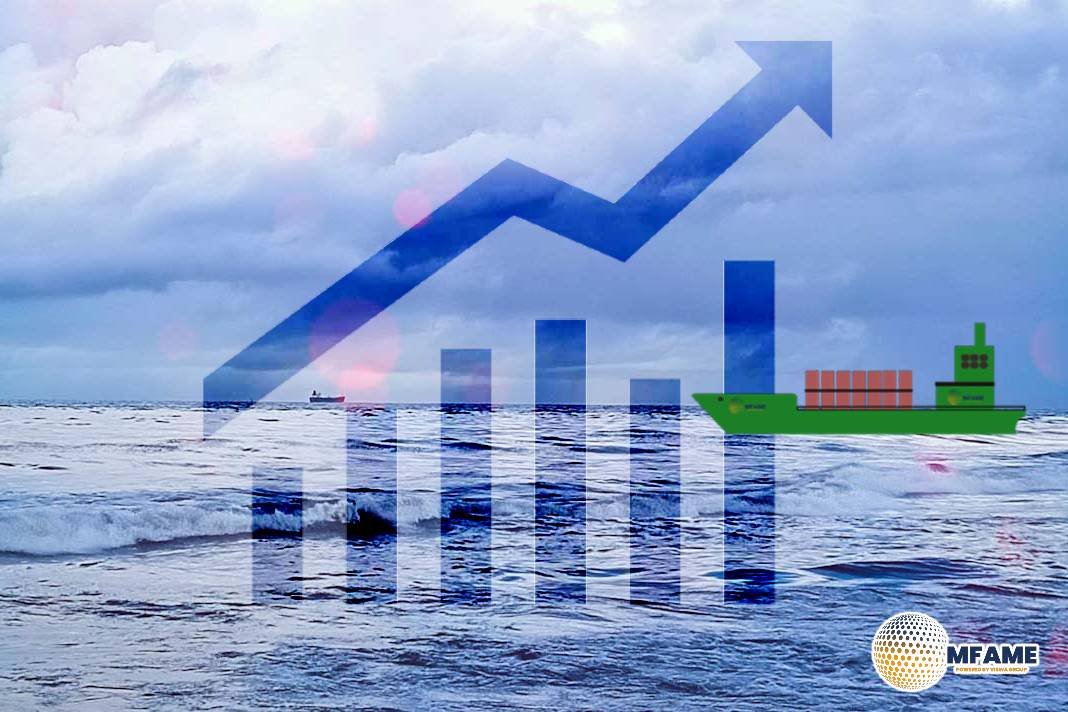
- The MABUX global bunker indices witnessed an upward movement after five weeks, with HSFO, VLSFO, and MGO indexes rising.
- Natural gas prices in Europe declined due to high inventories, easing supply concerns. Concerns over fraudulent labeling of used cooking oil (UCO) as “used” to exploit green fuel values prompt calls for enhanced transparency and limits on UCO imports in Europe, emphasizing alternative, non-biological fuel solutions.
Market Uptrend
During Week 51, the MABUX global bunker indices began an upward trajectory, marking the first positive movement in the past five weeks. The 380 HSFO index rose by 11.38 USD: from 508.68 USD/MT last week to 520.06 USD/MT.
The VLSFO index, in turn, added 28.79 USD (649.86 USD/MT versus 621.07 USD/MT last week). The MGO index increased by 34.44 USD (from 898.92 USD/MT last week to 862.87 USD/MT). At the time of writing, the upward trend in the market continued.
Global Scrubber Spread
Global Scrubber Spread (SS) – the price difference between 380 HSFO and VLSFO – has entered the growth phase: plus $17.41 ($129.80 versus $112.39 last week).
The weekly average also increased by $1.49. In Rotterdam, SS Spread rose by $12.00 (from $85.00 last week to $97.00), while the weekly average, on the contrary, dropped by $3.00.
In Singapore, the price difference for 380 HSFO/VLSFO widened by $25 ($156.00 versus $131.00 last week), with the weekly average narrowing by $11.33. We expect the upward trend in SS Spread will continue in the upcoming week.
Natural Gas
High inventories, alleviated concerns of supply shortages, weakened demand, and increased confidence in Europe’s ability to navigate the winter without significant supply disruptions have collectively contributed to a decline in natural gas prices across Europe in recent weeks. The winter premiums in both the futures and options market have virtually disappeared. Meanwhile, the supply continues to expand, as global exports from January to November (492 billion cubic meters) have increased by 2.4% (11.4 billion cubic meters) compared to the same period last year. This growth is still notably lower than the increase of just over 5% (22-24 billion cubic meters) observed in both 2021 and 2022.
The price of LNG as bunker fuel in the port of Sines (Portugal) continued firm decline, reaching 683 USD/MT on December 20 (minus 125 USD compared to the previous week). Concurrently, the price difference between LNG and conventional fuel on December 20 favored LNG by 117 USD, compared to 22 USD a week earlier. On that day, MGO LS was quoted at 860 USD/MT in the port of Sines.
MDI Index
During the 51st week, the MDI index (the ratio of market bunker prices (MABUX MBP Index) vs. the MABUX digital bunker benchmark (MABUX DBP Index)) revealed the following trends in four selected ports: Rotterdam, Singapore, Fujairah and Houston:
In the 380 HSFO segment, Houston was the only overvalued port, with the average weekly overpricing increasing by 4 points. Rotterdam and Singapore saw weekly average increases of 4 and 5 points, respectively, while Fujairah experienced a decrease of 2 points, maintaining an undervaluation premium above the $100 mark.
In the VLSFO segment, Singapore and Fujairah were deemed overcharged according to the MDI, with the average weekly ratio decreasing by 19 points in Singapore and 13 points in Fujairah. In Rotterdam and Houston, VLSFO remained undervalued. Weekly average levels of undercharging increased by 7 points in Rotterdam and 5 points in Houston.
In the MGO LS segment, all ports remained underpriced, with the average margins showing a decrease of 5 points in Rotterdam, 20 points in Singapore (here the undervaluation level fell below the $100 mark) and 17 points in Houston. In Fujairah, the MDI index achieved 100 percent correlation between market price and the digital benchmark.
There is still no consistent trend in the dynamics of the MDI index in the world’s largest hubs.














![[Watch] Crazy Power Needed to Move World’s Largest Containerships](https://mfame.guru/wp-content/uploads/2023/11/mfame-tanker-100x70.jpg)

